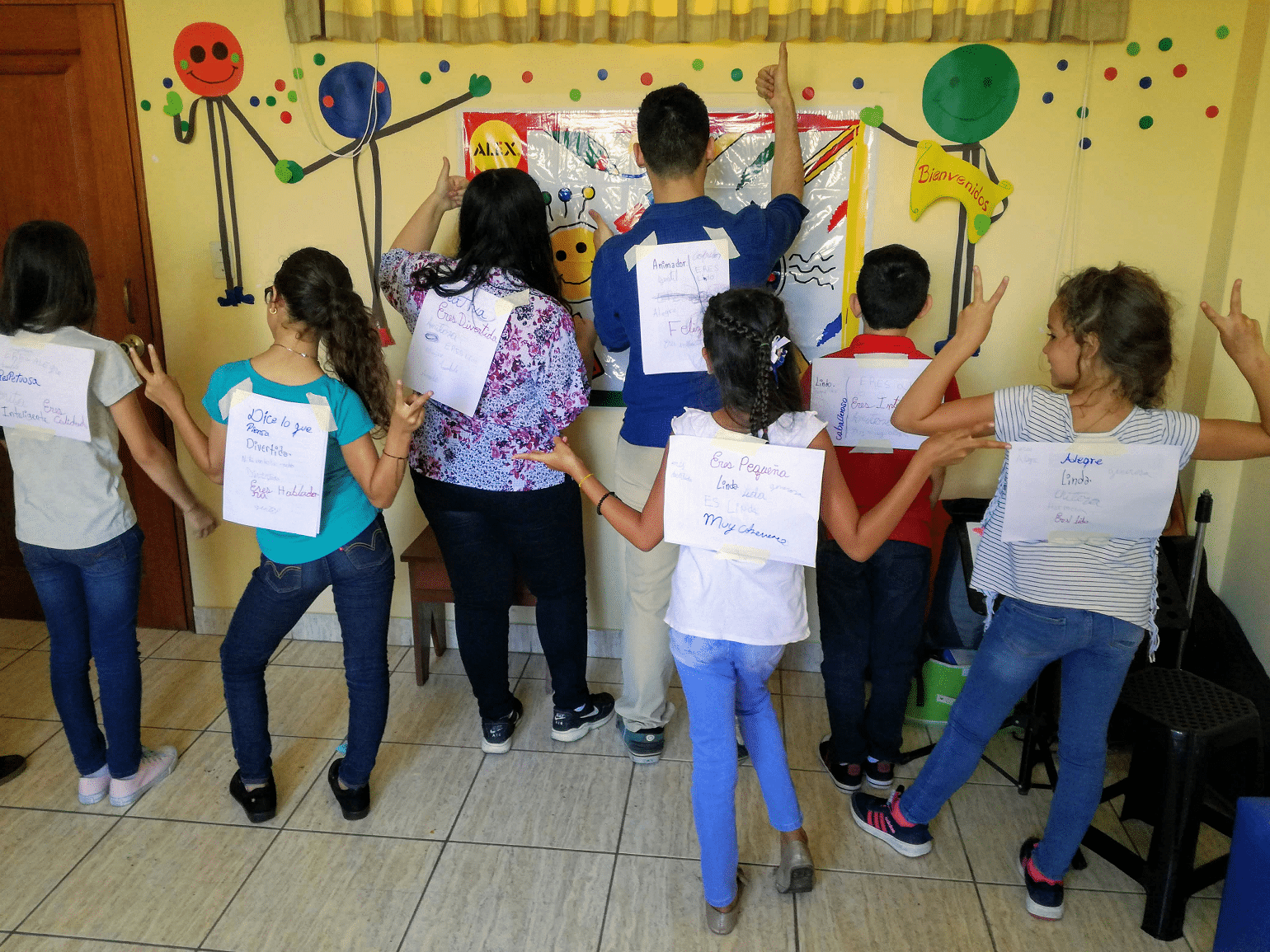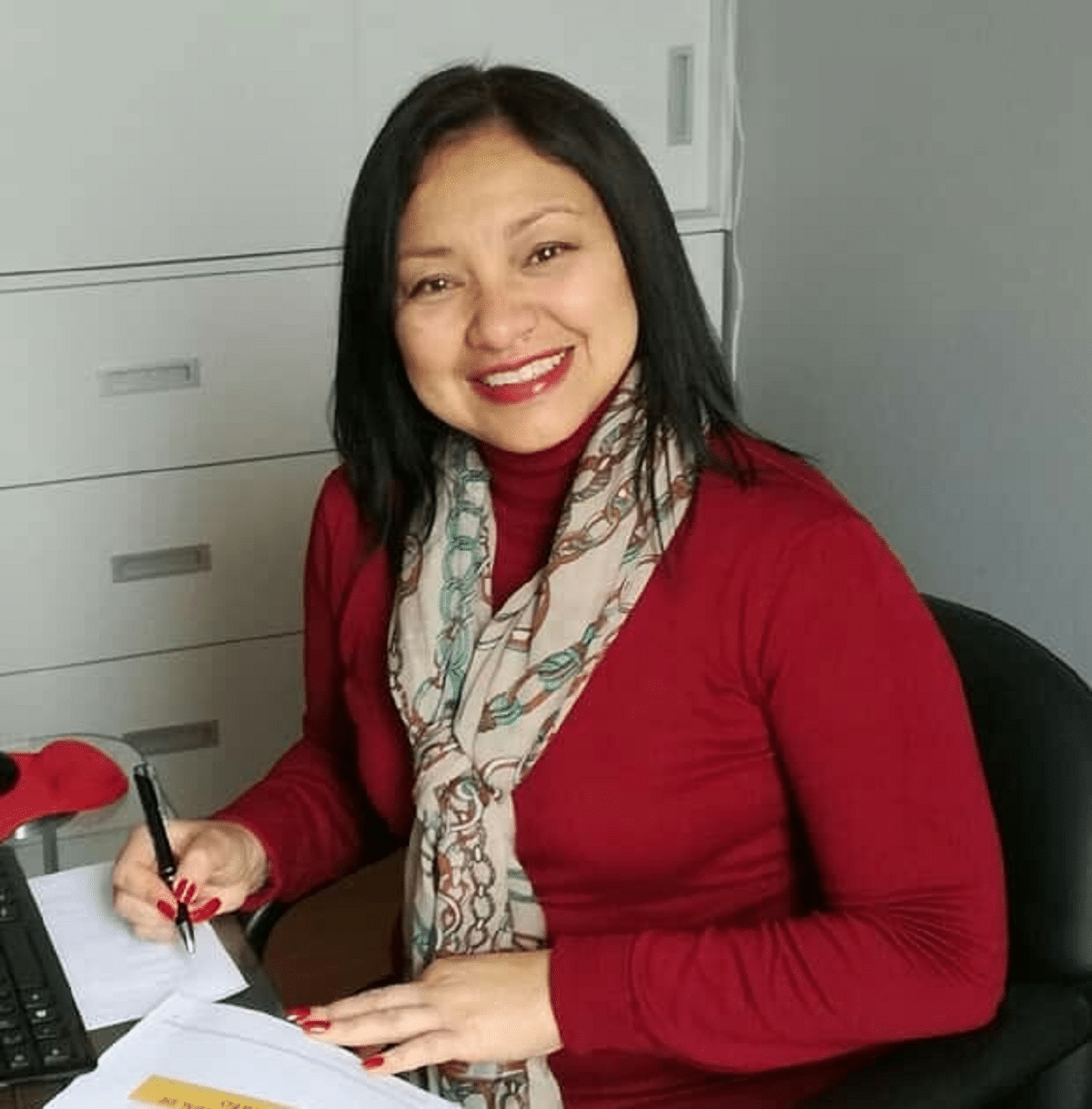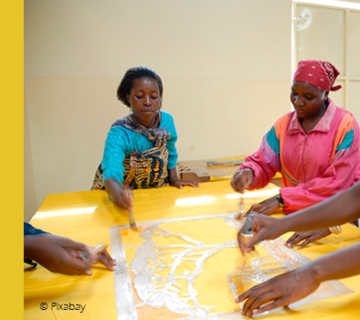Many Venezuelan migrants have arrived in Peru and other South American countries in search of a better life. Irene Indriago Castillo is a Venezuelan clinical cognitive psychologist who collaborates with the Focolare Movement in a variety of ways. She is currently working as an international organisational specialist in Peru. We have asked her about her personal and professional experience in this role.
 What makes the migrants suffer and what gives them hope?
What makes the migrants suffer and what gives them hope?
The people arriving in Peru have often used the cheapest form of transport possible to travel from Venezuela and have left behind everything they owned and the people they love. After the journey and the challenges of passing through migration controls, the experience which is sometimes called “from illusion to delusion” begins. These people have very little money but they want a better life for themselves: they want a home and a job so they can financially support family members who have remained in Venezuela. Unfortunately, these dreams soon begin to disappear and life becomes very difficult. They suffer a lot because they are separated from their relatives and probably receive very little news from them; the normal pattern of life is lost and they do not feel safe and secure anywhere. Sometimes they are worse off than they were in Venezuela. Adjustment is difficult and this can create difficulties between couples. These people are surrounded by a sea of uncertainty which saps away their spiritual and emotional energy. Only people with a very clear aim and a deep faith are able to overcome such challenges quickly.
 What are their greatest and most urgent needs?
What are their greatest and most urgent needs?
Their most immediate need is to earn enough to maintain themselves. They also need to work through the legal processes required to gain permanent residency and to acquire healthcare provision. They need to find ways to maintain contact with their families in Venezuela and they need help and support to handle their frustration, doubts and sadness.
There are many children among the migrants: what traumas do they face and how can they be helped?
Children and adolescents usually know that the reason why they are migrating is to find a better life, nonetheless, they are still emotionally shocked when it actually happens. They do not have the same capacity as adults to handle change. Through the workshops that I hold for them, I have come to realise that the decision to travel to Peru is always taken by the parents and the young people are never asked for their opinion. Although they understand that migration may lead to a better life, they do not all want to come. They see their parents less, they are anxious, they communicate less and don’t have friends. They do not all get a place at school in Peru and those who do are often called offensive names by the other students. Their sadness, anger and fear is often expressed in forms of behaviour that their parents don’t understand: they may be rebellious or cry a lot or become very isolated. It is really important to spend time with them, to find ways of communicating and to form groups with people of their own age so they feel supported
Do you think there is any hope that these young people will have a better future?
While there is life there is hope. We need to focus upon their resilience as a means of strengthening their mental and emotional capacity to deal with such great challenges in life. From a human rights perspective, the country in which they are now living must guarantee basic nourishment, healthcare and education. It is also essential to support them as they maintain communication with their family members and build new friendships. They also need opportunities to learn about their new environment and they have great need of spiritual support. These are all means to form people with sound values and a vision for the future and the capacity to make choices which will help them to fulfil their dreams.
Anna Lisa Innocenti


 Italiano
Italiano Español
Español Français
Français Português
Português




Sin duda no puede ser fácil salir de la patria, las amistades, el trabajo, sobre todo muchas veces la familia. Creo que Argentina en ese aspecto es un buen lugar para llegar. Claro que están los que, en este momento especial, se quejan de que los extranjeros fácilmente encuentran trabajo y los nativos muchas veces están hoy desprotegidos. Tanto unos como otros deben ser tenidos en cuenta. Pienso que no son son muchos los xenófogos argentinos pero en realidad no deberíamos tener ni siquiera uno porque TODO HOMBRE ES MI HERMANO.